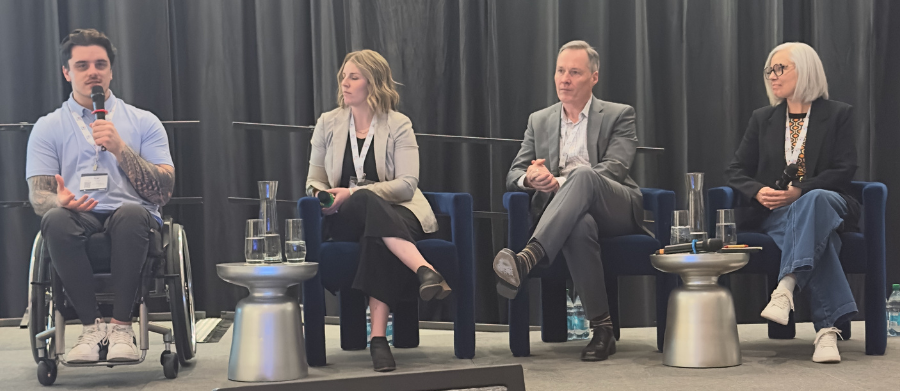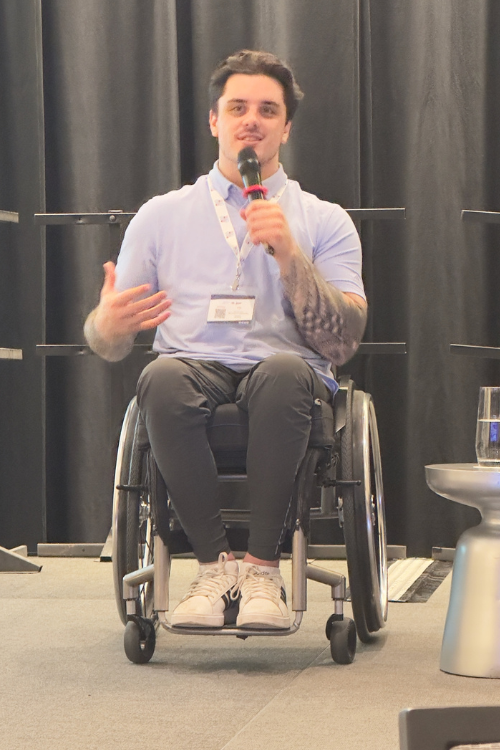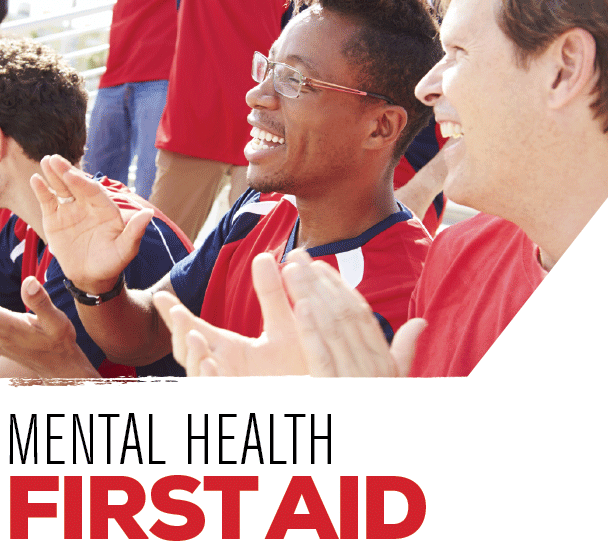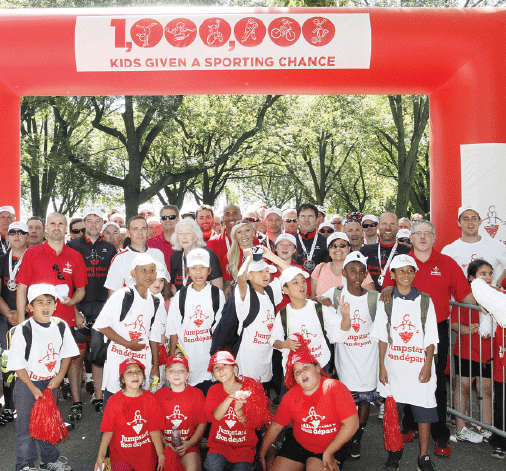An expert panel explores ideas to enhance inclusivity in sports, from making venues and accommodations more accessible to increasing the visibility of para sports on social media.
By Angela Kryhul

(l-r): Ryan Straschnitzki, Karen Dommet, David Legg, Lori Talling
At Sport Events Congress 2025, held March 18-20 in Calgary and hosted by Sport Tourism Canada, a panel of experts emphasized the importance of hosting inclusive sporting events. They highlighted examples such as the Ontario Parasport Games in 2019 and 2023, talked about educating local businesses on the importance of accessibility, using apps like Access Now to crowdsource accessibility information, and using social media to raise awareness.
Here are some of the highlights from that panel discussion:
Doug Dirks, moderator, former CBC radio and TV host: Why is it important that communities support para sports?
Lori Talling, Invest Durham; general manager of the 2023 Ontario Parasport Games: I think we need to provide the opportunity for everyone to experience the benefits of participating in sport, and that’s something we do through para sport. For us, on the para sport event hosting side, it’s not just a one and done event. We’ve made it a priority to develop strong legacy plans as a way to keep the momentum going. For example, it’s an opportunity to provide funding that supports programs and the purchase of equipment, and to provide opportunities for youth who don’t have the financial means to participate.
When we hosted the 2019 and 2023 Ontario Parasport Games, we developed a program called ‘Be the Roar,’ where we encouraged community and school groups to adopt athletes and teams—students wrote letters to athletes to cheer them on. We also included demonstration sports during the 2023 Games and gave people the opportunity to come out and try different sports.
Doug Dirks: What can be done to increase accessibility in communities?
Ryan Straschnitzki, para athlete, founder of the Straz Strong Foundation, and survivor of the 2018 Humboldt Broncos bus crash: [After the accident], not only did I want to get back to sport, but I had to… navigate my way through Calgary and everywhere that I travelled. It was kind of discouraging. I realized that if you can’t access a facility or a hotel… you can’t compete in sport. As a community, we need to come together to have those conversations, see the world with an accessibility plan and how we can include everyone by first allowing them to access the facilities and places they need to go in order to pursue para sport.
Karen Dommett, Manager, Games & Competition, Special Olympics Canada: Any major sporting event is going to typically have some type of municipal, provincial or federal funding. I think there’s such an opportunity to address… capital projects or accessibility upgrades. From a funding perspective [there needs to be] more intention on that, where some of the funding could be dedicated towards enhancing accessibility. Because [accessibility] isn’t just for that event. Those impacts and legacies stay in the community and will impact the lives of the people that live there.
Lori Talling: I think really engaging the community, making sure that when we’re hosting events we talk to our local businesses, engage with our downtown BIAs, our chambers of commerce and boards of trade about becoming more accessible. We started using the Access Now app when we hosted the Ontario Parasport Games in 2019, and in 2023 we made sure the Games facilities were on the app. [The app uses crowdsourced information], so we saw lots of opportunities to make things more accessible and how to do better.
Doug Dirks: How do you leverage social media to promote para sport?
Ryan Straschnitzki: I was never much on social media before… but when I had surgery done and my dad posted the first clip of my knee moving up towards my chest, Ryan Reynolds liked it, and then Ashton Kutcher, and it blew up. I said, ‘alright, well, I better take advantage of the situation here.’ Now, I like to post rehabilitation, training and sport videos to shed some awareness on the sports that I’m doing. There’s tons of viewership from around the world, mostly positive interactions, and it opens up the doorway through conversation.
Lori Talling: From our community perspective, we always make it a priority when there’s a major sporting event, such as the Olympics or Paralympics, to look for athletes within our own community and tell their stories. I encourage all communities to do that when big events are happening, regardless of whether they’re happening within your own community,
Karen Dommett: We’re not waiting for the traditional media to come to us. We’re taking ownership of creating content and the pickup of it is incredible. Special Olympics Canada takes a documentary crew with us to the World Games, and they post segments on social media. For the National Games, we relied solely on YouTube with a return of over $12 billion worth of ad value reach, because the asset is that good and the stories of our athletes are that good
Doug Dirks: How do we get more destinations to host para sport events?
David Legg, Professor of Sport Management and Adapted Physical Activity, Mount Royal University, Calgary: I think people overestimate how complicated it is to bid for and host events for athletes with disabilities. You can use event hosting to make facilities, hotels and infrastructure more accessible, which is good for everybody.
Lori Talling: Sometimes [destinations] have a fear that they don’t have the capacity or the level of accessibility required to host some of these events. I think it’s about asking questions, having an open mindset and having those conversations. Our provinces, for example, can help to facilitate conversations between communities about the economic and social benefits of hosting para sports. Don’t assume that you’re not able to host these events. You may be able to host very well with the right mindset.
Published April 2025




